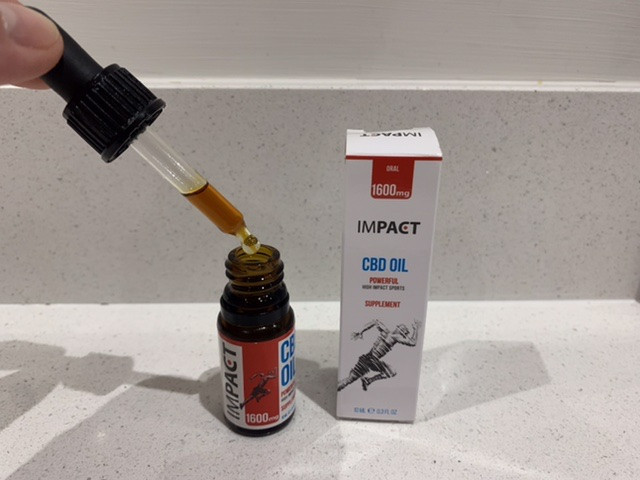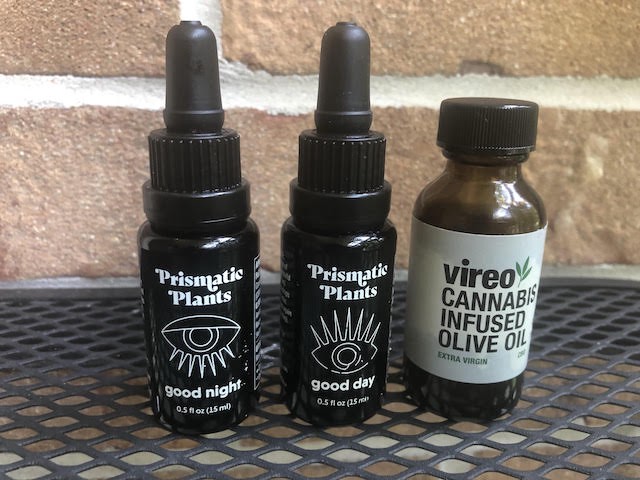CBD Oil Alternatives

Just taking some CBD oil for stress reduction, better resistance or to get a good night’s sleep. You probably know someone who has such a bottle on his bedside table, because we use it more and more. This supplement of the substance cannabidiol, CBD for short, has many applications, which makes it versatile. However, the quality of CBD oil has a major impact on its effectiveness. Finding the right supplement and dosage can therefore be difficult. Moreover, the nutrient is not always suitable to use. We’re happy to tell you why!
The interest in CBD oil is growing enormously. We know the nutrient CBD from the hemp plant, which is why it is often confused with THC. Unlike THC, however, CBD has no psychoactive effects. Many health effects can be attributed to the active cannabinoid, including the promotion of mental health and its use as a painkiller, anti-inflammatory and antioxidant. Think of the use of CBD oil for pain complaints, anxiety disorders, sleep problems, epilepsy, schizophrenia, Parkinson’s, MS and Alzheimer’s.3-10 CBD oil is also an increasingly used therapy for cancer, mainly as self-medication. Research even shows that the oil has preventive implications.
What does CBD oil do?
To get a handle on the effectiveness of this interesting supplement, it is important to understand its mechanism of action. CBD oil acts on the so-called endocannabinoid system, or ECS for short. Scientists only discovered this system in the early 1990s. They determined that the body itself produces endogenous cannabinoids (the endocannabinoids), cannabinoid receptors and associated enzymes. This complex system is involved in almost all organs, the immune system and the nervous system where it contributes to the homeostasis of the body. For example, it contributes to regulation of mental health, the sleep cycle, in stress, energy levels, metabolism, pain and inflammation, among other things. The ECS keeps the body and mind in balance.

Why (not) CBD supplementation?
So CBD oil is promising, however, the efficacy is not so obvious. This depends in part on the quality of the supplement. CBD oil is available in different concentrations. In several cases, however, the quality appears to be substandard. For example, a lower dosage may be claimed than is contained in the supplement. It is also important that there is no THC (<0.2%) in the CBD oil. A higher percentage is not only illegal, but potentially dangerous. Find out more information on CBD oil from this Readers Digest article.
However, the fact that this is widely used nowadays does not mean that it is the best-suited supplement for everyone. For example, it can be difficult to find the right dosage. The dose depends on the complaint, although people also respond to CBD oil in varying ways. Side effects are sparse, but symptoms such as nausea, dizziness, fatigue and heart palpitations can occur. Side effects with long-term use are still unknown but possible liver damage can occur. Caution is also advised with the use of some medications, because they can reduce the effectiveness of CBD or even strengthen it. The use of CBD oil also possibly enhances the side effects of the medication in question. This also applies, for example, to commonly used painkillers and sleep aids.
Alternative Supplements
The endocannabinoid system discussed earlier works through activation of cannabinoids. In addition to the body’s own endocannabinoids, this also occurs through cannabinoids from plants, thus including CBD and THC. In addition, there are also non-cannabinoid plants with similar effects. With these, it is possible to achieve the same effects as cannabinoids.
Many uses of CBD oil revolve around pain, inflammation and agitation. There are many alternative options for this. If you don’t want to use CBD oil, choose one of the nutrients below, depending on the complaint you want to use it for.
- PEA
- Curcuma
- MSM
- Magnesium
- GABA
- Clove
- PEA
Palmitoylethanolamide (PEA) is a fatty acid amide that the body makes itself. Therefore, we also see it as an endocannabinoid and often compared to CBD. Thus, PEA has a calming effect and promotes sleep. Furthermore, it has an anti-inflammatory effect. Unlike regular painkillers and anti-inflammatory drugs, PEA is completely safe, according to many years of research. It gives no side effects and works both ways: analgesic and anti-inflammatory.




